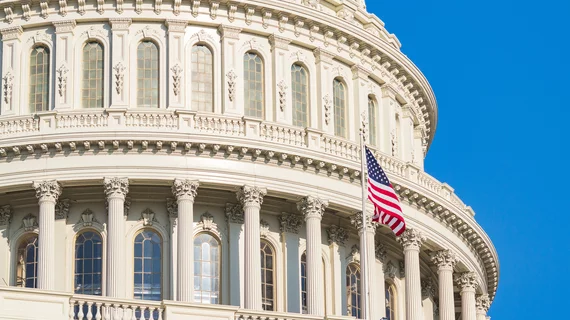Trump administration announces Medicaid block grants under new branding
The Trump administration has released its Medicaid block grant program under a new name that allows states to designate funding and put a cap on Medicaid spending. The program, dubbed Healthy Adults Opportunity, is an optional intervention initiative that fundamentally changes the way part of Medicaid is funded.
It affects only Medicaid recipients who are under age 65 and aren’t eligible for Medicaid due to a disability or the need for long-term care, and in states where Medicaid coverage is optional.
According to CMS, HAO gives states more flexibility, with more negotiating power on drug costs through a formulary similar to those in the commercial market. This means states can limit the drugs available to Medicaid beneficiaries. However, there are some protections for those with HIV and behavioral health conditions.
Many of the “flexibilities” under HAO have been available via section 1115 waivers, though some are new. These include waiving requirements like retroactive coverage periods and cost-sharing with beneficiaries. States will also be able to customize benefit packages and make program adjustments, adhering to minimum standards. Cost-sharing cannot exceed 5% of family income.
“Vulnerable populations deserve better care. Data shows that barely half of adults on the Medicaid program report getting the care they need,” CMS Administrator Seema Verma said in a statement. “This opportunity is designed to promote the program’s objectives while furthering its sustainability for current and future beneficiaries and achieving better health outcomes by increasing the accountability for delivering results.”
CMS noted that states will be responsible for “increased accountability” of the program results.
Critics of block funding argue the approach will cut funding to Medicaid, and Democrats have long opposed the initiative. Republicans, failing to overturn the Affordable Care Act and overthrow state expansions, have attempted to implement block grants as a means to pull back spending on the federal program.
According to CMS, 71.4 million individuals were enrolled in Medicaid and CHIP as of October 2019. Total Medicaid and CHIP expenditures reached $600 billion in 2017, though expenditures are expected to grow 2.7% to $616.1 billion in 2018, with the federal spending share accounting for 63%.
“We’ve built in strong protections for our most vulnerable beneficiaries and included opportunities for states to earn savings that have to be reinvested in strengthening the program so that it can remain a lifeline for our most vulnerable,” Verma said during the announcement.
The new program is also expected to face legal challenges.
"Just like their failed efforts to impose work requirements on beneficiaries, I have no doubt that this plan to implement Medicaid block grants will not withstand our legal system," said Rep. Joe Kennedy (D-Mass.)
Kennedy, alongside Rep. Jim Cooper (D-Tenn.), are leading a rejection of the block granting program. The two penned a letter to HHS Secretary Alex Azar and Verma with 34 other colleagues arguing less spending on the federal program will harm enrollees and directly comes into conflict with Congress’ intent when establishing Medicaid.

